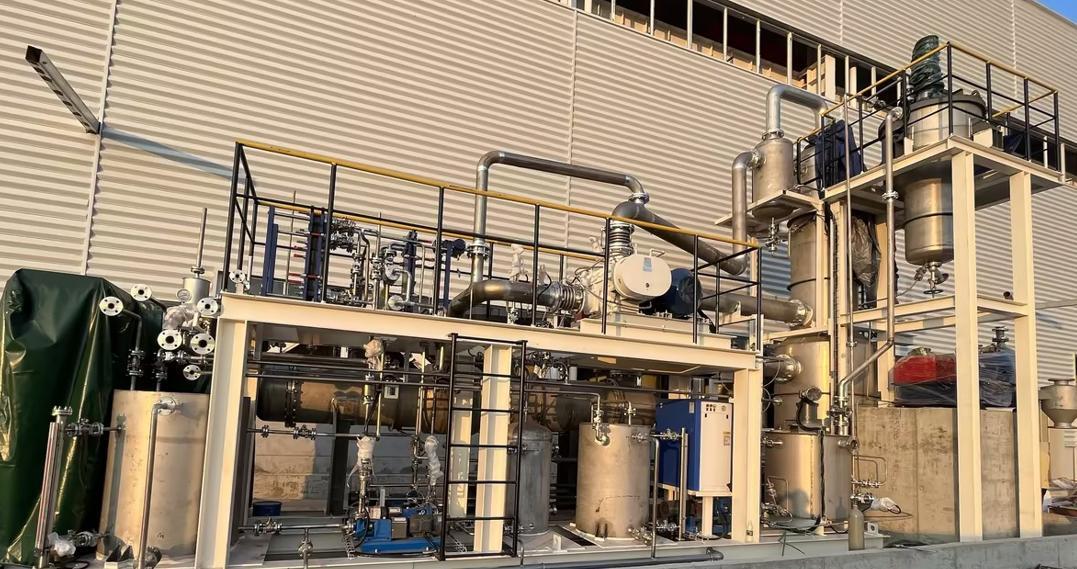Among the various evaporation and crystallization technologies available today, Mechanical Vapor Recompression (MVR technology) stands out for its exceptional energy efficiency. However, despite its inherent advantages, there remain multiple practical strategies that can be employed to further enhance the energy performance and operational reliability of MVR systems.
Optimize Pretreatment of Feed Liquid
• Reduce solid content: Remove suspended solids through filtration, centrifugation, or sedimentation. This reduces fouling risk in heat exchangers and improves heat transfer efficiency.
• Adjust pH / use antiscalants: Proper chemical conditioning helps minimize scaling and corrosion, extending cleaning cycles and maintaining performance.
• Preheat feed liquid: Utilize residual heat from condensate or concentrate to preheat the incoming feed, thus lowering the energy required for heating.
Improve Compressor Efficiency
• Choose the right compressor: Select centrifugal or screw compressors that match the system’s design and operating conditions.
• Use Variable Frequency Drives (VFD): Dynamically adjust compressor speed based on evaporation load to avoid energy waste.
• Regular maintenance: Clean blades, inspect seals, and ensure proper lubrication to maintain mechanical efficiency.
Optimize Heat Exchanger Performance
• Use effective feed distributors: Ensure uniform distribution of liquid within the heat exchanger to achieve consistent heating.
• Plan regular cleaning: Use chemical or mechanical methods to remove scale buildup and maintain high heat transfer rates.
• Optimize heat transfer area: Design the evaporator and condenser with suitable surface areas to prevent over- or under-sizing.
Integrate Heat and Recover Waste Energy
• Recover waste heat: Reuse heat from condensate and exhaust or install heat pumps to utilize low-grade thermal energy.
• Couple with multiple-effect evaporation: Integrate MVR with multi-effect evaporation systems, using vapor from early effects to reduce the load on the compressor.
• Improve insulation: Insulate steam and condensate pipelines—especially high-temperature sections—to minimize heat loss.
Optimize Operating Parameters
• Fine-tune temperature and pressure: Lower evaporation temperatures within acceptable limits to reduce compressor power (while maintaining performance).
• Control compression ratio: Identify the optimal ratio through testing to avoid excessive energy demand.
• Maintain stable load conditions: Avoid frequent start-stop cycles and large fluctuations, keeping the system within its most efficient range.
Implement Intelligent Control and Monitoring
• Install real-time sensors: Continuously monitor pressure, temperature, liquor level and power to adjust operations dynamically.
• Develop energy efficiency models: Use data analytics or machine learning to predict and maintain optimal system conditions.
• Conduct regular energy audits: Analyze energy use patterns and target inefficiencies for improvement.
Apply Other Technological Enhancements
• Use high-efficiency separators: Improve gas-liquid separation to reduce entrainment and compressor load.
• Design system redundancy: Add backup pumps or compressors to ensure continuous and efficient operation during maintenance or failure.
Conclusion
The optimization measures outlined above address key aspects of MVR evaporator design and operation, including feed pretreatment, compressor efficiency, heat exchange performance, waste heat recovery, process control, and system reliability. These strategies can be selectively adopted and integrated into the system design based on the specific technical, economic, and operational requirements of each project. By doing so, MVR systems can achieve even greater energy efficiency, lower operational costs, and more stable long-term performance.
Get In Touch With US
Enchem is here to listen to your needs and provide sustainable solutions. Contact us to discover more.


